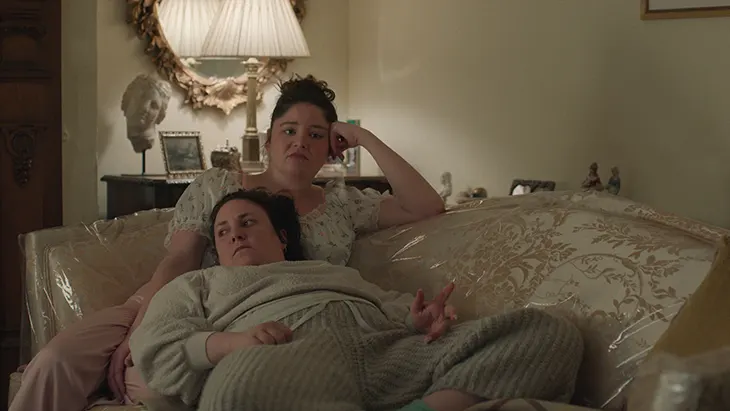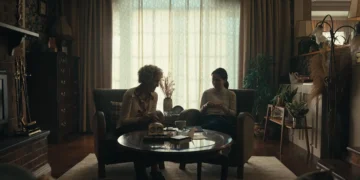
Lena Dunham returns to the rom-com arena with Too Much, her first major series since Girls, steering the narrative this time into expatriate territory. Netflix dropped the first look images, accompanied by an official release date – July 10.
TV
The ensemble cast features an array of familiar faces: Michael Zegan and Janicza Bravo bring supporting depth, while Richard E. Grant and Rita Wilson appear in key mentor roles. Naomi Watts and Rhea Perlman join as unlikely confidantes, and Adwoa Aboah headlines a subplot that explores the city’s creative undercurrent. Emily Ratajkowski and Andrew Rannells round out the lineup, ensuring that Too Much will juggle multiple story threads without losing its focus on Jessica and Felix.
View this post on Instagram
At its core, Too Much follows Megan Stalter’s Jessica, a New York workaholic in her mid-thirties whose recent breakup pushes her toward self-imposed exile in London. Intent on living “like a Brontë sister,” she instead encounters Felix, whose red-flag tendencies both intrigue and alarm her. Their dynamic forces Jessica to confront her own patterns of isolation and impulsivity, asking whether love can flourish when cultural misunderstandings collide with personal baggage.


On the production side, Too Much brings together talent known for balancing humor with emotional depth. Dunham returns as creator, while the team behind Love Actually draws on its expertise in crafting interlinked romantic arcs. By writing and steering this project, she continues her focus on women’s stories, probing the messiness of growing up and the ache of self-discovery.

Set between continents and emotional extremes, the series pulls apart the myth of romantic reinvention abroad with humor and honesty. As Jessica and Felix fumble their way through love, loneliness, and cultural confusion, the show promises a messy, modern reflection on connection in an overstimulated world. With its premiere locked for July 10, Too Much arrives just in time for anyone who’s ever wanted to disappear, and accidentally find themselves instead.



















